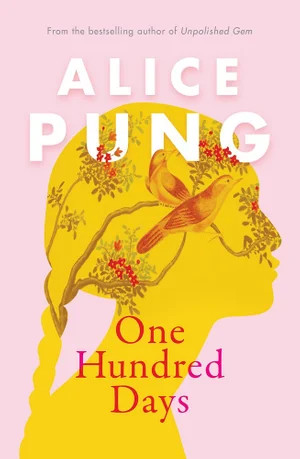One hundred days by Alice Pung

One hundred days is the story of the claustrophobic relationship between a pregnant teenager, Karuna, and her obsessively demanding Chinese-Filipino mother, Grand Mar to the baby, a driven and highly superstitious migrant worker, struggling to care for herself, her daughter and her expected grandchild. The story is told as a letter from Karuna to her baby, following a casual relationship with her tutor in the local homework help centre. It’s a relationship that Karuna drifts into, not really knowing what she wants, perhaps just seeking something more meaningful in her life.
However the pregnancy becomes a power struggle between Karuna who just wants something of her own, and her mother who becomes tyrannical in the restrictions she imposes, imprisoning her daughter, and regulating every aspect of her life. It is a case of emotional abuse, and the sense of powerlessness that Karuna feels is very real; her mother knows how to present the right story to get outsiders on her side.
Whilst at the beginning Grand Mar seems almost a caricature of the traditional blinkered ‘tiger’ mother, her speech, her fears and warnings all expertly brought to life; Pung rescues her from the stereotype to reveal a backstory that allows us to sympathise more with her situation. The novel becomes a story of gradual understanding and reconciliation between mother and daughter, overcoming the suffering of the past. It is a coming-of-age story, of migrant experience in Australia, sharing some common themes with Tiger daughter by Rebecca Lim, but elaborated for a slightly older reading audience.
This is an outstanding book of a teenager’s struggle for independence amid the hardship of migrant life in Australia, racism, and conflicting social values. Highly recommended for YA readers.
Themes: Teenage pregnancy, Parent child relationship, Migrant experience, Love, Control.
Helen Eddy